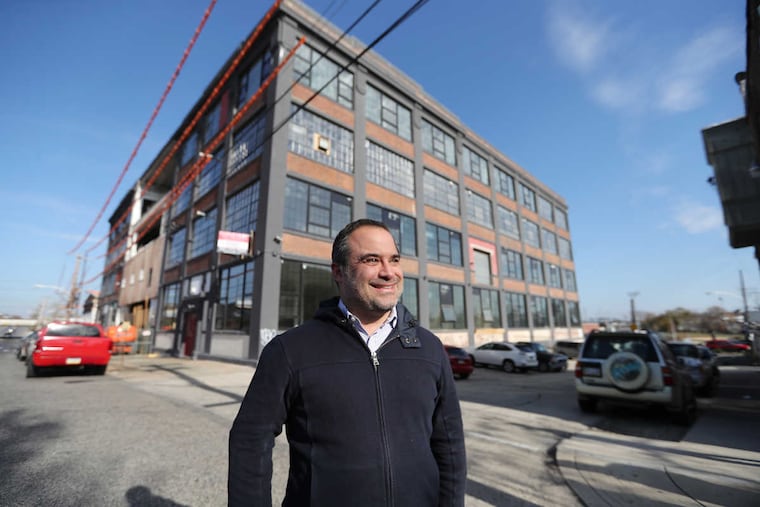Working to restore jobs to a neighborhood that's in demand again
One in a continuing series spotlighting real estate markets in the region's communities. It's all about jobs in Kensington, because without jobs people can't afford to buy or rent homes. Even homes in need of tender loving care.

One in a continuing series spotlighting real estate markets in the region's communities.
It's all about jobs in Kensington, because without jobs people can't afford to buy or rent homes. Even homes in need of tender loving care.
But the job you need on Monday to buy that house on Sunday is not readily available in this neighborhood, which was a huge piece of "the Workshop of the World" that was Philadelphia in the century after the Civil War.
A growing number of people in Kensington are trying to change that, and much, much more.
On a late October morning, three men sat at a conference-room table at MaKen Studios South at 3735 Castor Ave., a quick walk south along Kensington Avenue from the Erie-Torresdale El stop.
Until the summer of 2015, the building was a packaging facility and warehouse owned by Impax Labs Co., which in the not-too-distant past operated three shifts every day but Christmas, said one of the men, Matthew A. Grande, a principal and chief marketing officer of Shift Capital.
"When it went on the market last summer, Brian [Murray, principal and CEO of Shift Capital] saw it and bought it," he said.
Unlike a lot of the abandoned hulks scattered around North Philadelphia, Impax was in "pristine condition" and "fit the criteria of being within a half-mile of four El stops," Grande said.
When Impax was up and running, its employees could walk or take public transportation to the plant from their homes, he said.
That remains the goal: providing employment opportunities for the neighborhood by offering low-cost space for businesses.
MaKen South provides temporary office space for Shift Capital, said Grande, a Moorestown native, until MaKen Studios North at 3525 I St. - the former home of Jo-Mar Textiles Co. - is completed.
MaKen is short for "Make Kensington," and that's what Shift Capital, neighborhood groups, and community-development corporations have become partners to accomplish.
Timing is crucial, because vacant industrial space - the two MaKens account for 260,000 square feet - is in the sights of housing developers coming in from Fishtown and other parts of Kensington. "There are stick-frame houses on Tulip Street in Port Richmond going for $350,000 a pop," Grande said.
There's a residential component to Shift's efforts, too: acquiring vacant houses scattered throughout the neighborhood and rehabbing them as rentals for current residents who want decent, affordable housing.
The fact that Kensington and Fishtown share the 19125 zip code means that median and average housing prices reflect what is happening in Fishtown.
Median home prices in the northern part of the zip code lie somewhere between Juniata's $79,000 and Fairhill's $59,000, real estate observers say.
Fishtown's third-quarter median home price was $310,000 and rising, the sales data show.
While Shift Capital's goal as a real estate development and community impact investment group is to revitalize "urban neighborhoods by creating shifts in environmental, social, and economic viability," Jeff Kahn, another principal in the firm, emphasized that "collaboration is the key to success."
Collaboration is manifested in the "Heart of Kensington," a coalition of community-development corporations, civic associations, and residents, said Casey O'Donnell, CEO of Impact Services Corp., a CDC that has been providing employment-training services and economic development and community development since 1974, often in partnership with New Kensington Community Development Corp.
"There are no anchor institutions, no Drexel, or CHOP in Kensington," he said.
"The anchor institution is 'the collective us,' " said O'Donnell, pointing to the restoration of McPherson Square Park as an example of what cooperation can achieve.
There is much work to be done, Grande said, hoping that data collection underway will get everyone to "agree what our problems and solutions are."
In Philadelphia overall, 26 percent of the people live below the poverty line," Grande said, while in Kensington, it's 58 percent.
"Just a 15-minute train ride from City Hall, and that's the disparity," he said.
215-854-2472@alheavens